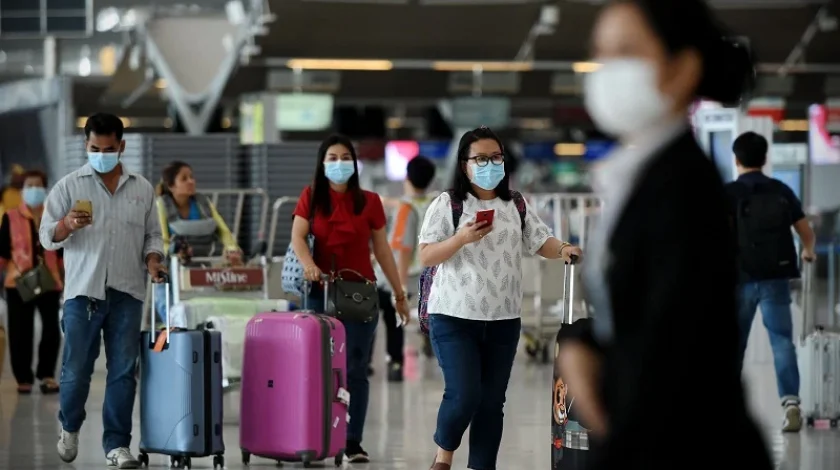COVID-19 has presented us with some difficult challenges and much uncertainty. Amongst those who are in a particularly precarious situation are the 2.2 million individuals who currently hold Australian visas. Most temporary visa holders do not have access to Centrelink or Medicare entitlements and many have found themselves jobless and homeless, with limited means to return home in the face of increasing global travel restrictions and flight cancellations.
All temporary Australian visas have visa conditions associated with them. A breach of a visa condition could lead to cancellation of the visa by the Department of Home Affairs, which could result in a visa holder becoming an unlawful non citizen facing deportation.
Those who stay in Australia beyond the duration of their visa and do not hold a subsequent visa, are also unlawful. If an individual has, against their visa history, a visa cancellation or breach of a visa condition, this could have serious implications on their ability to apply for another Australian visa in the future, and could even affect their ability to apply for visas to other countries.
The Australian government and Department of Home Affairs have been quick to make changes to some visas, although further changes are still required. On 4 April 2020, Alan Tudge MP Acting Minister for Immigration, Citizenship, Migrant Services and Multicultural Affairs, made some much-awaited announcements in relation to the status of visa holders in Australia.
Temporary Short Skill Visa (subclass 482)/Temporary Work (Skilled) visa (subclass 457)
Many businesses are looking at placing employees on unpaid leave, or otherwise changing their duties and working hours in order to get through this difficult period (see our previous Employment Law COVID-19 blog).
However, individuals holding a 457 or 482 visa cannot cease work for more than 60 continuous days and must only work in the occupation for which they have been nominated to work in. There are about 139,000 temporary skilled visa holders in Australia. However, on 4 April 2020, Alan Tudge confirmed that those temporary skilled visa holders placed on unpaid leave, or who otherwise had their duties our hours altered, would not be in breach of their visa conditions. They would also be able to access their superannuation. This was welcome news and offered relief for employers and 457/482 employees alike.
Unfortunately, for 457/482 visa holders who are made redundant, they will still only have up to 60 days to find an alternative business to sponsor them and during these difficult economic times, business sponsors may be hard to come by, especially given the often high financial costs and paperwork involved in sponsoring an employee on a 482 visa. The likely outcome for those on 457/482 visas made redundant, is that unless they are able to make other visa arrangements, they will need to return home.
Student visa: Working more than 20 hours a week
Student visa holders are not able to work more than 20 hours per week when their term is in session. However, in response to high demands for supermarkets to keep essential items in stock, the Department of Home Affairs has waived this restrictions for students working in certain roles and industries. For example, student visa holders who are employed by Coles, Woolworths or Aldi, as well as nursing students and those working in the aged care sector, have had this visa condition lifted, and are subsequently able to work more than 20 hours per week. Employers can also apply to the Department of Home Affair to waive this condition for student visa holder employees.
Student visa holders are now also able to access their superannuation as a means of financial assistance. However, for those unable to support themselves financially while here in Australia, Alan Tudge has encouraged them to return home.
Working holiday visa: Working more than 6 months
For the 118,000 individuals on working holiday visas, they are ordinarily not able to work with an employer for more than 6 months.
However, the Department of Home Affairs lifted this work restriction condition in response to the bushfires and enabled working holiday visa makers to work for more than 6 months if their employer was an employer affected by the bushfires, and if they performed certain “specified work”, including packing fruit and vegetables and manufacturing dairy produce. More information on what is classified as specified work, can be found here.
On 4 April 2020, Alan Tudge announced similar concessions for those on working holiday visas working in the critical sectors of health, aged care, disability care, agriculture and food processing and child care. Those working in critical sectors are able to work for their employer for more than 6 months and when their 1 year visa expires, they would be eligible for an extension of their working holiday visa for up to a year.
For working holiday visa holders working outside those critical sectors, they may still be able to seek a waiver of the 6 month work limitation by lodging a Form 1445 with the Department of Home Affairs and demonstrating why these are “exceptional circumstances” that justify the lifting of the 6 month work restriction. It would be useful to have a supporting letter from the employer when lodging the Form 1445.
No further stay condition
These conditions, often found on visitor visas, prevent the visa holder from applying for another visa while here in Australia. However, individuals can, and many have been, applying to the Department to waive the no further stay condition on the basis of compelling and compassionate grounds involving a major or significant change to the visa holder’s situation, out of the visa holder’s control. Arguably, COVID-19 and the current global travel bans would meet this threshold of compelling and compassionate grounds. The Department has dedicated additional resources to assist with the volume of no further stay waiver applications.
Tourist Visa: 3 month stay
The tourist/visitor visas usually allows visa holders to stay in Australia for only up to 3 months at a time. Given the current travel restrictions, there would be a number of tourist/visitor visa holders who could potentially be staying in Australia longer than 3 months. Currently, the visa period cannot be extended for individuals wanting to stay in Australia longer. Visa holders must apply for a new visa. If the visa has a no further condition attached to it, the individual can apply to have that condition waived on compelling and compassionate grounds as set out above. The Department has not yet made changes to lift this 3 month stay condition.
Potential and new changes
The Migration Institute of Australia, the peak professional association body for Australian migration agents and lawyers, has made calls for the Department to further implement significant changes for the benefit of visa holders. These proposed changes include:
- immediately waive all no further stay condition 8503 for all visa holders currently in Australia so they can apply for other visas
- create a COVID-19 specific fee-free visa solution which allows work rights and access to Medicare for the duration of the emergency
- consider extending temporary visas automatically until 30 October 2020 in the first instance
- immediately remove Labour Market Testing and Skilled Australia Fund levy requirements for employers looking to sponsor individuals on 482 visa
On 3 April 2020, the Department of Home Affairs issued a new visa subcategory, the Temporary Activity (subclass 408) visa, which is a visa specifically in response to COVID-19. Those eligible to apply for the new subclass 408 visa, must satisfy all of the below criteria. The applicant is:
- undertaking work directly associated with COVID-19 such as work in areas including but not limited to agriculture, aged care and public health; and
- in Australia at the time of applying for the 408 visa; and
- unable to depart Australia as a result of the COVID-19 pandemic; and
- either;
- the holder of a temporary visa that is 28 days or less from ceasing to be in effect; or
- was the holder of a temporary visa that ceased to be in effect not more than 28 days before the application of the 408 visa; and
- unable to make a valid application for;
- a visa of the same subclass mentioned in paragraph 3 above; or
- a temporary visa of any other subclass other than a subclass 408 visas.
As at the date of writing, being 9 April 2020, the remainder of the above proposals have yet to be agreed to by the Australian government. Given Alan Tudge’s calls for visa holders to return home where possible, it is unlikely that further favourable amendments to visa holders will be made.
Summary
Temporary Short Skill Visa
(subclass 482)/Temporary Work (Skilled) visa (subclass 457)
Condition
- Must not cease work for more than 60 continuous days.
- Must be in full time employment in the occupation for which they were nominated and approved to perform
Response
The Department has amended the 60 continuous days condition and requirement of full time employment for those visa holders still employed by their nominating employer so that if they are stood down, or have their hours reduced, they will not be in breach of their visa. They are also able to access their superannuation payments. However, those made redundant must still find another sponsor within 60 days, or make other suitable visa arrangements, or else will need to depart Australia.
Student visa holders
Condition
- Must not work for more than 20 hours per week while study is in session
Response
The Department has waived this for students working for Coles, Woolworths, Aldi, in aged care, and for nursing students. Other employers can apply to the Department to have this work limitation waived. They can also access their superannuation. Those unable to financially support themselves while here in Australia are encouraged to return home.
Working holiday visa holders
Condition
- Cannot work for the same employer for more than 6 months
Response
The Department has waived this condition for those undertaking “specified work” for bushfire affected employers and for those working in the critical sectors of health, aged care, disability care, agriculture and food processing and child care. Those working in critical sectors can also extend their visa upon expiration, for a further 1 year.
Tourist Visa
Condition
- Many are able to stay in Australia for only 3 months at a time, and have a “no further stay” condition, which means they cannot apply for another visa while here in Australia
Response
The Department may, but has not yet, waived these requirements although visa holders may apply to the Department to have a no further stay condition waived, therefore enabling them to apply for another visa while here in Australia. Those visitors unable to support themselves while here in Australia, are encouraged to return home.
If you need employment and business migration assistance, contact our dually qualified Employment Associate and Registered Migration Agent 1681285, Lisa Qiu.





